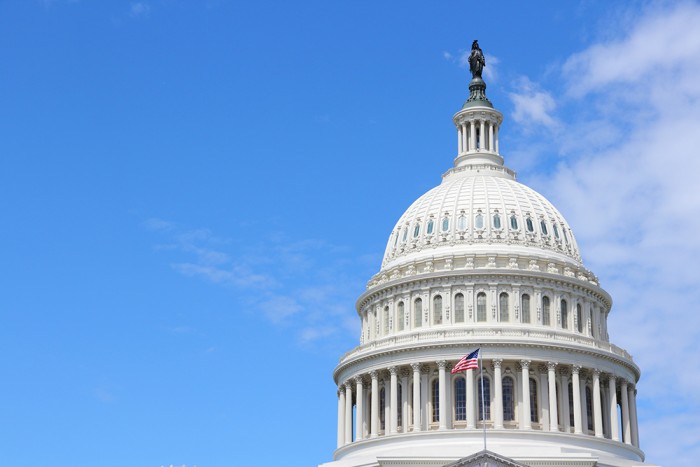Legislation
Representative Fitzpatrick Files Discharge Petition to Force Vote on Bipartisan Bill Preventing ACA Premium Spikes
For Immediate Release
December 10, 2025
Media Contact: Casey-Lee Waldron
WASHINGTON, D.C. — Today, Congressman Brian Fitzpatrick (PA-1) released the following statement after filing a discharge petition to bring his Bipartisan Health Insurance Affordability Act directly to the House floor for a vote, ensuring Congress takes action to prevent devastating health insurance premium increases when current protections expire at the end of the year:
“Congress cannot sit idle while American families face a preventable crisis. Our job is to protect the people we serve, and that responsibility demands immediate action.
If these protections expire, millions of Americans will be hit with premium increases they simply cannot afford, forcing impossible choices about their health, their finances, and their futures. They deserve a concrete solution now—not promises of one later.
For months, I have worked with Republicans and Democrats in both chambers, along with input from the Administration, to build a bipartisan solution that can actually pass—not a political messaging exercise. This bill delivers the urgent help families need now, while giving Congress the runway to keep improving our healthcare system for the long term. Responsible governance means securing 80 percent of what families need today, rather than risking 100 percent of nothing tomorrow.
Filing this discharge petition ensures the House will have the opportunity—and obligation—to vote. Every member must decide whom they serve: the people, or the politics. We can prevent this—and we must. If 217 of my colleagues are willing to join me in putting constituents first, we can protect working- and middle-class families from a catastrophic crisis.
Our neighbors are counting on us. I’m calling on my colleagues to sign this petition, bring this two-party solution to the floor, and deliver the security and certainty American families deserve.”
About the Bipartisan Health Insurance Affordability Act:
Fitzpatrick (PA-01) was joined by Representatives Jared Golden (ME-02), Tom Suozzi (NY-02), Don Bacon (NE-02), Rob Bresnahan (PA-08), Marie Gluesenkamp Perez (WA-03), Donald G. Davis (NC-01), and Nicole Malliotakis (NY-11) to introduce the Bipartisan Health Insurance Affordability Act, a two-party, targeted solution to prevent a sharp jump in healthcare costs as current protections expire and ensure millions of Americans can maintain affordable coverage.
Without immediate congressional action, the scheduled expiration of the Affordable Care Act’s enhanced premium tax credits would result in steep, sudden cost increases and widespread loss of coverage—destabilizing the healthcare markets working families rely upon.
Key Provisions of the Bipartisan Health Insurance Affordability Act
The legislation advances five reforms designed to protect affordability, strengthen accountability, and ensure taxpayer value:
- Prevents Premium Spikes: Extends enhanced premium tax credits through 2027, to protect families from abrupt monthly cost increases.
- Restores Consumer Control: Stops unauthorized plan and subsidy changes by requiring consent and prompt notification before any modifications take effect.
- Shines Light on Middlemen: Ends hidden spread pricing, severs PBM profits from drug prices, and requires full rebate pass-through to ensure savings reach patients.
- Gives Families New Tools to Manage Costs: Expands access to Health Savings Accounts and simplifies premium payments to reduce disruptions in coverage.
- Smart Stewardship of Taxpayer Dollars: Modernizes eligibility and introduces a reasonable minimum contribution to protect long-term affordability and responsible stewardship of federal dollars.
####
HB 2070 Introduced: Dry Needling as an Acceptable Practice Within PT
Representative John Schlegel has introduced a co-sponsorship memo regarding House Bill 2070, Clarifying Dry Needling as an Acceptable Practice within Physical Therapy (PT).
The American Physical Therapy Association (APTA) recognizes dry needling as being within the physical therapist scope of practice. However, Pennsylvania’s Physical Therapy Practice Act (Act 110 of 1975) does not explicitly allow or deny the performance of this type of therapy. This creates a legal gray area and causes uncertainty among licensed physical therapists. Due to the current law’s silence on this treatment technique, legislative clarification is needed.
Dry needling (sometimes referred to as “trigger point dry needling” or “intramuscular manual therapy”) is a treatment method used to relieve muscle pain and stiffness and to improve range of motion. It is important to note that dry needling and acupuncture are not the same, though both are considered needle-based therapies. These procedures have different medical origins, needle placement and application techniques, and serve different purposes.
HB 2070 clarifies that licensed physical therapists may perform dry needling therapy given certain education and training requirements are met and will further specify that dry needling does not include the practice of acupuncture.
A majority of states acknowledge that dry needling is within the scope of practice for physical therapists, including our neighboring states of Delaware, Maryland, New Jersey, Ohio, and West Virginia.
The bill was referred to the House professional licensure committee on December 3, 2025.
Medicare Telehealth Practices Restored Until January 30, 2026
From the Center for Connected Health Policy 11-18-25 Newsletter:
Last week, after agreeing to a deal to end the federal government shutdown, Congress passed a continuing resolution that would reopen the government, at least through January 30, 2026. Within the continuing resolution package was an extension of the Medicare telehealth waivers, which had previously expired on October 1, 2025 (NOTE: The package contained several divisions, however the link provided in this newsletter only goes to the section containing the telehealth items). In the passed legislation, the telehealth waivers that had expired will now be extended through January 30, 2026.
| TELEHEALTH WAIVER | NEW EXPIRATION DATE |
| Waiving the location requirements (geographic and type of site) | January 30, 2026 |
| Expanded list of eligible telehealth providers | January 30, 2026 |
| Allowing federally qualified health centers (FQHCs) and rural health clinics (RHCs) to be eligible telehealth providers | January 30, 2026 |
| Delaying the prior in-person visit for mental health when certain permanent telehealth policy requirements are not met | January 30, 2026 |
| Delaying the prior in-person visit for mental health provided via telecommunications technology for FQHCs and RHCs | January 30, 2026 |
| Allowing of audio-only for telehealth services | January 30, 2026 |
| Extending the use of telehealth to conduct a face-to-face encounter for recertification of eligibility for hospice care | January 30, 2026 |
| Extending the Acute Hospital Care at Home Initiative | January 30, 2026 |
In drafting the extension, Congress struck out the previous date in federal law of “September 30, 2025” (when the waivers previously ended) and placed the new expiration date of “January 30, 2026.” The extension of the waivers will be retroactive to September 30, 2025. Therefore, if a telehealth interaction took place starting October 1 through to the end of the shutdown, but was not eligible for coverage/payment under permanent telehealth policy, it would now be eligible under federal law.
What does this mean in light of the final rule for the 2026 Physician Fee Schedule (PFS)?
In the final rule for the 2026 PFS, the Centers for Medicare and Medicaid Services (CMS) aligned their policies on the prior in-person visit for mental health when an FQHC/RHC uses telecommunications technology with what Congress had put in place for other provider types (i.e. psychologists, counselors, etc.) delivering mental health services via telehealth when certain requirements (i.e., patient location) under permanent telehealth policy were not met. Prior to this continuing resolution being passed, CMS required that FQHCs and RHCs must meet the prior in-person visit requirements for all mental health visits that took place via telecommunications technology starting October 1, 2025. Due to the funding bill extensions, this requirement will no longer need to be met as the waiver’s expiration date is now January 30, 2026, with the in-person requirements now becoming effective on or after January 31, 2026. Even though CMS changed the federal regulations to reflect the need to have a prior in-person visit for mental health visits provided via telecommunications technology by an FQHC or RHC starting October 1, 2025, federal statute would take precedence over regulations. You can read more about the final rules for the 2026 PFS in CCHP’s fact sheet.
As for the effect this continuing resolution will have on other items in the 2026 PFS final rule, very little will change. CMS could not make changes to the telehealth policies in federal law as Congressional action would be required to do so, thus the 2026 PFS telehealth policies centered on issues that were not covered by the telehealth waivers. Readers may wonder about the policies regarding FQHCs and RHCs providing non-mental health services via telecommunications technology. With this new waiver expiration date of January 30, 2026, it simply means that those non-mental health services provided via telecommunications technology by an FQHC or RHC will again technically be regarded as “telehealth visits” and not “non-mental health services provided via telecommunications technology.” The reimbursement rate will not change nor how the entities bill for services since even during the shutdown, FQHCs and RHCs were instructed to continue to bill non-mental health services provided by telecommunications technology with G2025 and they were being paid the same rate they would have received had the service been labeled a “telehealth” service.
What’s Next?
It is important to highlight that this latest action has only extended the telehealth waivers an additional two and a half months, which is the same extension period as the funding for the federal government. This will mean that talks and negotiations will need to happen again in December and January and another bill will need to be passed if we are to avoid another shut down and expiration period.
Additionally, in early November, CMS announced that it would return all telehealth claims submitted between October 1 and November 10, 2025, that were not identified as definitively qualifying as mental health (as those were the primary telehealth services still covered during the waiver lapse period). Now that the waivers have been reinstated — and applied retroactively — providers may wish to resubmit any claims that were returned during that period, as well as submit all telehealth claims that may have been previously held.
These updates, as well as a full review of current State and Federal telehealth policies and practices, will be presented at the next RCPA Telehealth Work Group meeting on Tuesday, November 25, 2025, at 10:00 am. Register for the meeting here.
If you have any questions, please contact RCPA COO Jim Sharp.
PA Passes Legislation for Telehealth “4 Walls” Compliance

Update on HB1939 – ID/A Market Index for DSP Services
HB1939, the ID/A Market Index for DSP Services, was originally scheduled for a vote in the House Human Services Committee on Wednesday, October 29, 2025. However, the bill was removed from consideration prior to the vote due to identified deficiencies in the bill’s language. Revisions are currently underway to address these issues, and it is anticipated that the committee will reconsider the bill for a vote sometime in November 2025.
RCPA continues to closely monitor the bill’s progress and will provide updates to members as new information becomes available.
Please direct any questions regarding this legislation to Tim Sohosky.
Brain Injury Awareness Day Event to Be Held in Harrisburg on November 17

On November 17, 2025, from 10:30 am – 3:00 pm, a Brain Injury Awareness Day will be held in Harrisburg at the State Capitol Rotunda. The day is dedicated to advocacy for survivors, caregivers, and professionals. Discussion topics will focus on the lack of a rate increase for brain injury residential providers and key brain injury legislation. The schedule for the day is below:
Main Rotunda
- 10:00 am: Arrive at Main Rotunda
- Visit vendor tables, take literature, conversations
- 10:15 am: Group Picture
- 10:30 – 11:30 am: Briefing
Legislative Offices
- 11:40 am – 12:50 pm: Legislative Meetings
- Attendees — Please schedule your own meetings.
Senate Room 8E-B
- 1:00 pm – 2:00 pm: Reception
- 2:00 pm – 3:00 pm: Survivors of brain injury share their experiences
Download the 2025 BI Awareness Day flyer for further details.














